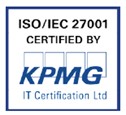CJEU: Breach of a Software Licence Agreement Considered an Infringement of Intellectual Property Rights
24 January 2020
Authors: Anton Pirinen and Jesper Nevalainen
Computer programs are protected by copyright as literary works under Directive 2009/24/EC of the European Parliament and of the Council of 23 April 2009 on the legal protection of computer programs (the “Computer Program Directive”). At its core, the copyright protection entails that rights to copy, alter, and distribute a computer program are exclusive to the copyright holder. As running a computer program involves making one or more copies of it, the protection also extends to the unlawful use of a program. In addition, the Computer Program Directive guarantees certain rights to the lawful acquirers of computer programs, some of which may be waived through contractual provisions.
To ensure the enforcement of their exclusive rights, the copyright holders are entitled to apply for the application of certain remedies guaranteed under Directive 2004/48/EC of the European Parliament and of the Council of 29 April 2004 on the enforcement of intellectual property rights (the “Enforcement Directive”). In Finland, the remedies include a possibility to seek a court order to stop the infringing behaviour, as well as statutory compensation and damages.
A permission to the otherwise unauthorised use of a computer program may be obtained through a licence, often as a part of broader agreement tailored to address the needs of the rightholder and the user. In addition to the licence conditions, such agreements may also include other terms, such as contractual covenants.
The Scope of Intellectual Property Protection of Computer Programs Clarified?
The Court of Justice of the European Union (the “CJEU”) recently ruled in case C-666/18 IT Development SAS v Free Mobile SAS that the breach of a clause in a licence agreement for a computer program relating to the intellectual property rights of the holder of the copyright of that program falls within the concept of “infringement of intellectual property rights” under the Enforcement Directive, and that, therefore, the holder must be able to benefit from the guarantees provided for by the Enforcement Directive, including the ability to seek a court order to stop the infringement.
Unfortunately, the CJEU’s ruling sheds only limited light on the condition that a software licence clause “relates to intellectual property rights”. According to the CJEU, a clause including a prohibition to modify the source code of a software package fulfils this condition, but the referring court (the Court of Appeal of Paris) had also made reference to other possible forms of a breach of a software licence agreement, namely a software licensee (i) not complying with the expiry of a trial period or (ii) exceeding the number of authorised users or some other limit, such as the number of processors used to execute the software instructions. These were not considered by the CJEU, although it could be argued that these are at the very heart of “use”, to which copyright protection extends.
In Finland, it has previously been considered that the use of a computer program in breach of the licence agreement terms may, depending on the terms that have been breached, constitute (i) a breach of a contract and/or (ii) a copyright infringement. The CJEU’s ruling clarifies the criteria under which the license terms can be classified. Going forward, if the terms do not relate to intellectual property rights, their breach will merely constitute a breach of contract. If the breached terms relate to intellectual property rights, the breach will also constitute a copyright infringement. However, some uncertainty will still remain, as the meaning of “relating to intellectual property rights” remains open to interpretation.
The Question of Licence Condition Versus Contractual Covenant Settled?
It would seem rational that the concept of a “clause in a licence agreement for a computer program relating to the intellectual property rights” covers contractual terms which relate to the licensee’s right to copy, alter, and/or distribute a computer program, or are otherwise connected to the copyright holder’s moral rights. Should that be the case, the breach of such clause would trigger an infringement of intellectual property rights and allow the use of the remedies guaranteed under the Enforcement Directive, which may most notably include injunctive relief, statutory compensation and damages.
On the contrary, it seems that a breach of a licence agreement clause not relating to the aforementioned rights, such as a contractual covenant merely labelled as a licence condition, may not constitute an infringement of intellectual property rights.
In conclusion, IT Development SAS v Free Mobile SAS seems to enhance the importance of defining and understanding software licence terms and the available remedies, from the perspective of both the licensors and the licensees.






